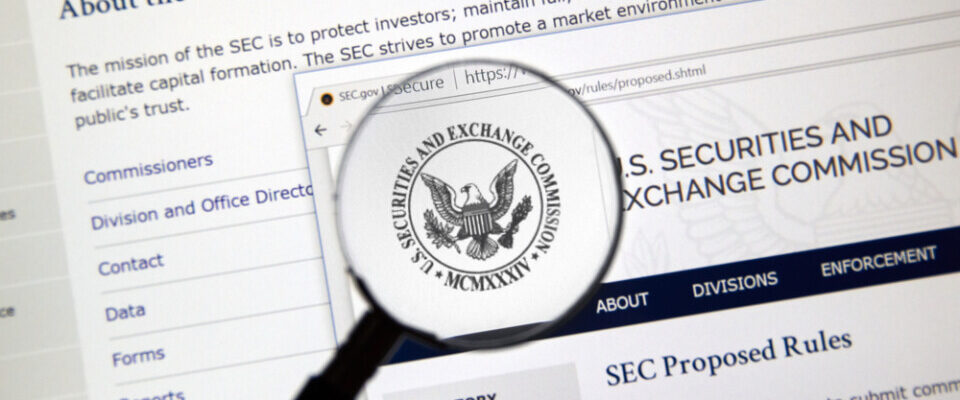The US Securities and Exchange Commission (SEC) adopted new rules that are aimed at widening the net of entities that will be required to register with the regulator.
But, the crypto industry was neglected once more, despite the long campaign it has carried out to get some answers from federal regulators.
The rules
The hundreds of pages worth of rules could be applied to digital assets and cryptocurrency, but the word ‘crypto’ itself is only mentioned once, and that too in a footnote.
The modifications of the SEC are historic, as they update the Securities Exchange Act of 1934 for identifying certain activities.
These activities are those that would cause the ones engaging in them to be categorized as ‘government securities dealers’, or ‘dealers’.
The modifications are also meant to define the activities that are done as a part of ‘regular business’. In prepared remarks, Gary Gensler, the SEC chairman, said that the measures are common sense.
He went on to say that it was not the intention of Congress to apply regulatory and registration requirements to some dealers and not to all.
He added that as per the update, companies acting like dealers need to register with the commission, which would protect investors, and promote transparency, resiliency, and market integrity.
The crypto industry
However, it remains unclear how the crypto companies will fit into the definitions and if they even do fit.
The rulemaking document’s main narrative did not include the word crypto or make any references to digital assets being a security.
This is despite the fact that industry players had made strong demands for the inclusion of crypto two years ago when the rule changes had first been proposed.
CEO and founder of the Chamber of Digital Commerce, Perianne Boring, submitted comments about the SEC’s move.
She stated that the SEC had opted to expand the scope of the proposals to those participating in the digital asset space through a single reference made in the proposals’ Footnote 36.
There was no additional analysis or discussion. The Chamber of Digital Commerce asserted that the regulator had failed to provide guidance again about when a digital asset is classified as a security.
The comment letter said that the digital asset market participants had made several requests for guidance and clarity over the years.
The failure
However, the SEC has failed to provide specific rules under which a digital asset would be categorized as an ‘investment contract’.
This has made it immensely difficult for trading platforms, issuers, and other market participants to figure it out.
Similar concerns were also expressed by the Association for Digital Asset Markets (ADAM) in its comment letter.
It said that if the commission wants to expand its authority to the digital asset intermediaries, then it needs to provide clarity on the scope of the expansion.
ADAM also asserted that the regulator’s economic analysis is a flawed one because it does not take into account the impact on the digital asset industry.
Instead, the regulator has only focused on the impact of the rules on proprietary trading firms and private funds.

